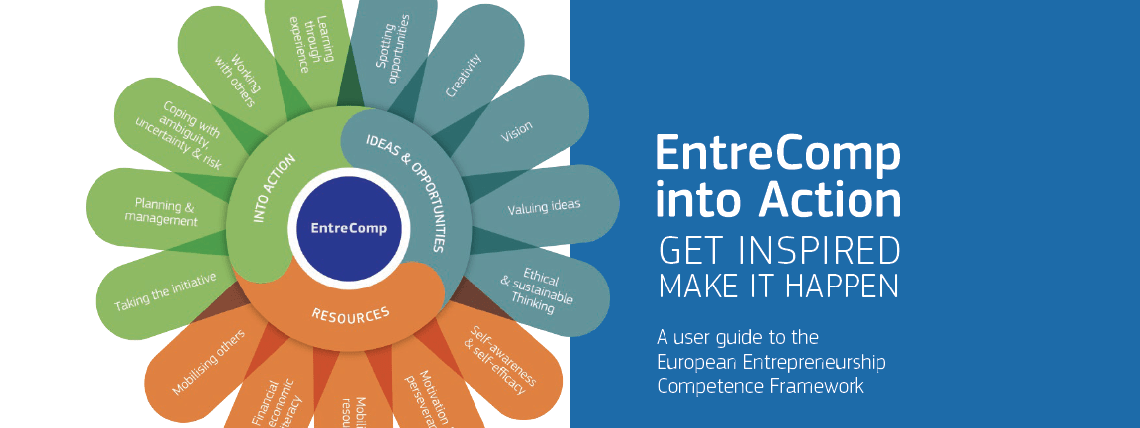
Enter.Mode - Developing entrepreneurial mindset and skills...
Development, sharing and critical reflection of entrepreneurship practice.
Webinar sessions within the framework of #EURegionsWeekUniversity and #EURegionsWeekCollege
jeudi 17 septembre 2020 12:55 par Natasa Urbancikova
Attention ESD enthusiasts, teachers and trainers:
Are you already familiar with the ESD-Competency-Framework for adult education?
It was developed in the "5P Competences" project and can now be used for free by all interested persons, e.g. in their function as trainers.
You can find more information on the ESD competency framework and exciting contributions on the topic of ESD/adult education in the "5P - Sustainability Competences in Adult Education" group:
www.discuss-community.eu/de/community/groups/viewg…
Come in and join the group!

Enter.Mode - Developing entrepreneurial mindset and skills...
Collaborative space for practitioners that are concerned with developing entrepreneurial mindset and skills of students.
Dear all,
do you know of, or have experience with internships that are specifically dedicated to sustainability skills? If so, I warmly invite you to share your knowledge / experience in our newly founded group:
www.discuss-community.eu/community/groups/viewgrou…
Best
Randolph
Intern selection: Which criteria are to be used?
Intern-company matching is not always an easy task for HEIs. And there could be a big debate: Companies look for certain qualities/skills and this makes sense. And what happens to students lacking these skills? They risk of not getting the internship, which in turn refrains them of getting the opportunity to improve themselves.Which would the role of the HEI be?Which should be the criteria for intern selection?Please feel free to contribute to this discussion...
Enter.Mode - Developing entrepreneurial mindset and skills through internships in higher educationSuggestions, on how to improve virtual internships for...
From my point of view, to have a good virtual internship, you have to had good communication with the persons that you work with (I will say it is better to know them first by person). One of the problems that I am having during my internship is that I was giving more than one task to do. It is necessary to have good communication and ask which task you need to prioritize. Also, it is good that after finishing one task to have corrections before starting another task. Good virtual communication is important to not have misunderstandings about the tasks or corrections. Another suggested way to improve the virtual internship is communication with others interns. It will be good to give them the contacts so they can communicate and solve some basic doubts between them. Finally, it will be good that the interns have place to work in silence and with good internet connection.
Enter.Mode - Developing entrepreneurial mindset and skills through internships in higher education
TRIGGER -Triggering innovative approaches and entrepreneurial skills for students through creating conditions for graduate’s employability in Central Asia.
TRIGGER is a multi-country project focusing on three countries of Central Asia (Kazakhstan, Uzbekistan, Tajikistan), which have witnessed important changes during the past decade. TRIGGER project is focused on two main factors. The first is the Human Resources development and the second is the strength of labour markets. TRIGGER project aims to contribute to economic growth in Central Asia countries in order to create positive conditions for better employability of university graduates. The TRIGGER objectives is to support HEI preparedness for future challenges especially related to the entrepreneurial and innovative nature of their HE environment, and to enhance Entrepreneurship Education and competences development at partner country HEIs. TRIGGER also intends to establish the Careers, Employability and Enterprise Services at...TRIGGER -Triggering innovative approaches and entrepreneurial skills for students through creating conditions for graduate’s employability in Central Asia.
TRIGGER is a multi-country project focusing on three countries of Central Asia (Kazakhstan, Uzbekistan, Tajikistan), which have witnessed important changes during the past decade. TRIGGER project is focused on two main factors. The first is the Human Resources development and the second is the strength of labour markets. TRIGGER project aims to contribute to economic growth in Central Asia countries in order to create positive conditions for better employability of university graduates. The TRIGGER objectives is to support HEI preparedness for future challenges especially related to the entrepreneurial and innovative nature of their HE environment, and to enhance Entrepreneurship Education and competences development at partner country HEIs. TRIGGER also intends to establish the Careers, Employability and Enterprise Services at partner country HEIs. Finally, it has the objective of empowering the relation between HEIs and the wider economic and social environment.
The 3rd Work package of the TRIGGER project refers to the Establishment/Enhancement of the Careers, Employability and Enterprise Services (CEES) and aims at promoting graduate’s employability in cooperation with employers. Additionally, it aims to implement capacity building of HEI teaching staff and companies’ trainers, to organize entrepreneurial learning and support the acquisition of related skills and competences, by the students that participate in internships based on EnteMode model.
www.trigger-project.com
Afficher plus
www.youtube.com/watch
New Video
Colleagues from Pegaso University jointly with interns discuss the outcomes of international internships, which took place in the framework of the European project EnterMode.
www.youtube.com/watch
New video:
My Virtual Internship - Business student Angeliki Papaemmanouil talks about her internship at Business Development Friesland, Netherlands.


Entrepreneurial Education Strengthening Resilience, Societal Change and Sustainability
Entrepreneurship education equips learners with competencies to manage the challenging circumstances inherent in entrepreneurial activity. One such competency is resilience, the capacity to address, adapt to, and overcome adversity, uncertainty, and change.
The recent occurrence of many different adversities – financial, environmental, migration crises and current pandemic crises – has strongly affected the economically active part of the countries and regions – business sector and entrepreneurs. Countries and regions are not prepared for prompt response; the adequate measures are missing. To build a resilient and sustainable community, it is important that all the regional key players, entrepreneurs among others, have sufficient knowledge and skills on crises and instability management which can limit the potential threat and impact of some disasters.
Therefore, Erasmus+ project ReFace –“Regions facing...Entrepreneurial Education Strengthening Resilience, Societal Change and Sustainability
Entrepreneurship education equips learners with competencies to manage the challenging circumstances inherent in entrepreneurial activity. One such competency is resilience, the capacity to address, adapt to, and overcome adversity, uncertainty, and change.
The recent occurrence of many different adversities – financial, environmental, migration crises and current pandemic crises – has strongly affected the economically active part of the countries and regions – business sector and entrepreneurs. Countries and regions are not prepared for prompt response; the adequate measures are missing. To build a resilient and sustainable community, it is important that all the regional key players, entrepreneurs among others, have sufficient knowledge and skills on crises and instability management which can limit the potential threat and impact of some disasters.
Therefore, Erasmus+ project ReFace –“Regions facing shocks: building resilient communities” (2020-1-SK01-KA202-078307) was proposed. Within the project, the responsiveness and optimal reactions of regional key players and public administrators will be enhanced by newly developed ReFace MOOC and raising awareness in the area of regional proactive approach to crises and shocks. In order to promote proactive approach to crises, the practical tools/road map for building resilient regions to respond to local and national challenges will be created.
It enhances the network creations which will bring together a group of experts to investigate what regions matter now, what constitutes resilience in the face of challenges, and what factors help to build and sustain strong regions. The project will create an arena where the business sector, academia, municipalities and government agencies meet to solve regional challenges. Together they can build a more resilient society with robust functions and flows – a society with the ability to quickly overcome and recover from societal pressures and with ability to assure the security of its inhabitants.
The databases on different types of the R&D projects and educational projects have been investigated before ReFace project proposal preparation. The several projects have been found dealing with sustainability or climate change impact but most of them were oriented on particular sector and not on resilient regions building which require proactive and horizontal approach through variety of disciplines. The concept is new and well explained at academic level but with limited transfer to regional key players and practitioners in the area of regional development so far.
For more information see:
reface-project.eu/the-project/
Afficher plus
FAVILLE: INVITATION TO PILOT TESTING
FAVILLE: Facilitators of virtual learning aims to enhance the quality standards of facilitation in virtual learning environments and to provide skills and competences that facilitators of virtual learning need to develop or improve their activity.
EXPECTED RESULTS, currently in piloting:
*Modular e-learning program for virtual learning facilitators
*A digital application that, in addition to describing individual facilitation methods and examples of their use, also offers an easy-to-use function to select appropriate methods according to the parameters (eg profile, course subject, number of students in the learning group, type of problem, etc.)
*A framework for validating skills and competences for obtaining professional qualifications for those facilitators who have acquired their skills, knowledge and competences outside the formal learning process in non-formal and informal learning.
We would like to invite you to assess your skills and...FAVILLE: INVITATION TO PILOT TESTING
FAVILLE: Facilitators of virtual learning aims to enhance the quality standards of facilitation in virtual learning environments and to provide skills and competences that facilitators of virtual learning need to develop or improve their activity.
EXPECTED RESULTS, currently in piloting:
*Modular e-learning program for virtual learning facilitators
*A digital application that, in addition to describing individual facilitation methods and examples of their use, also offers an easy-to-use function to select appropriate methods according to the parameters (eg profile, course subject, number of students in the learning group, type of problem, etc.)
*A framework for validating skills and competences for obtaining professional qualifications for those facilitators who have acquired their skills, knowledge and competences outside the formal learning process in non-formal and informal learning.
We would like to invite you to assess your skills and knowledge as a facilitator in virtual environment.
You can read more about the process in the attached leaflet.
If you are interested, let us know via: docs.google.com/forms/d/e/1FAIpQLSfmQD-V3VPN6UCEqq…
Afficher plus
- leaflet O3 final.pdf 0.21MB
soundcloud.com/beyondabroad2020/episode-10-virtual…
Episode 10: Virtual Internships Abroad by BeyoND...
BeyoND Study Abroad is back!! Join us in this episode to hear what NDI was up to over winter break with our virtual Global Professional Experience (vGPE). We hear from two students, Andreas Vlahos and Stella Cho who both participated in the vGPE program and had the opportunity to virtually intern at Xiaomei in China and Cooper Hospital in India.
www.youtube.com/watch
Watch the brandnew webinar on virtual internships, conducted by Pegaso Univ. Naples.
Our colleagues Eugenio d' Angelo and Ida Caruccio in this video present findings from literature review and good practice identified in the course of virtual internships carried out in the course of the EnterMode project.

Enter.Mode - Developing entrepreneurial mindset and skills...
Collaborative space for practitioners that are concerned with developing entrepreneurial mindset and skills of students.
30 marzo 2021.L’Università Telematica Pegaso ha promosso un webinar sul tema del tirocinio realizzato in modalità a distanza (Virtual Internship).
Nel corso del webinar sono stati affrontati i temi sulla pianificazione, sulla gestione, sulle ricadute del tirocinio virtuale. Gli studenti che hanno partecipato alla sperimentazione pilota del progetto ENTER.MODE “Internship Model for Developing of Entrepreneurial skills Higher Education Students (Codice progetto: 601125 EPP-1-2018-1-SK-EPPKA2-KA) hanno offerto i loro preziosi spunti esperienziali. Si ringraziano i numerosi docenti, il personale degli uffici erasmus, tirocinio, comunicazione, progetti dell'università nonchè le imprese e gli studenti che hanno arricchito l'evento.
I think a mixed team delivers the best performance because you can learn from each other's experience and because such a varied input is created without everyone having to acquire all the experiences themselves. Mixed as in gender, age, background, schooling etc
www.youtube.com/watch
This experience has just come to an end and we can say we enjoyed it so much!! The virtual internship of the Enter Mode project lasted one month with brilliant results! Patricia Ciefova from TUKE university in Kosice, Slovakia had her internship in Eurocrea Merchant, from Milan, Italy. A success story of virtual cooperation between Higher Education Institutes and companies.


www.youtube.com/watch
If you could not join us for our recent webinar "The Entrepreneurial Employee - An EntreComp Europe Open Space webinar" with Martin Lackéus and led by the EntreComp Europe Practice Pillar on Employability and Enterprise, we have got some good news for you.
The EntreComp Europe Webinar is now available to watch online. Join Martin Lackéus of Chalmers University of Technology, Sweden, one of the authors of The Entrepreneurial Employee to discover more about how and why you should use EntreComp and entrepreneurship in the workplace.
The Entrepreneurial Employee is a webinar presented by the EntreComp Europe project, where Martin Lackéus will present an overview of overview of what entrepreneurial employees do, why such behaviours are needed and how any employee can become more entrepreneurial. This is drawn from the recent EU report ‘The entrepreneurial employee in public and private sector – What, Why, How’ published by the European Commission Joint Research Centre.
I agree with you Iris! An intern could feel like he/she can bring up more easily certain ideas if it is a start up project still in the developmental phase. It is sort of a brainstorm session, so any idea might help enrich the new project. On the contrary, I feel like there's a lot more to learn in cases of well-established working practices: of course some ideas can be brought up also in this case but it wouldn't be the first thing to do, compared to trying to learn as much as possible.
Serious gaming
Serious gaming companies should borrow more fun concepts from casual gaming in order to make the concepts they want to emphasize more interesting. Serious gaming is a good learning tool but it sometimes needs more fun elements to attract more users especially young people. The learning concepts can be combined with more fun concepts from traditional video games. Thus more people will use them and the learning experience will be enhanced. What do you think?
Enter.Mode - Developing entrepreneurial mindset and skills through internships in higher education-
Collaborative space for practitioners that are concerned with developing entrepreneurial mindset and skills of students.
-
Catégorie
Entrepreneurship and education -
Créé
lundi 17 juin 2019 -
Administrateurs du groupe
Natasa Urbancikova, petra kleine, Anna Stamouli, Zsófia, Thomas Eckert, Natassa, 969b7a11f75fee67530b022d0abab79d, Eugenio D'Angelo, Kornélia Rikli, Randolph, Iris Bos, Francesca Uras



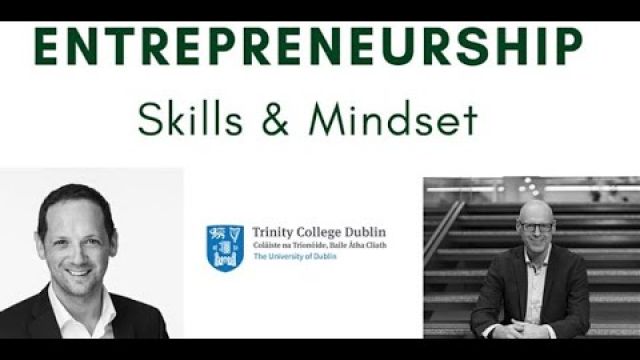
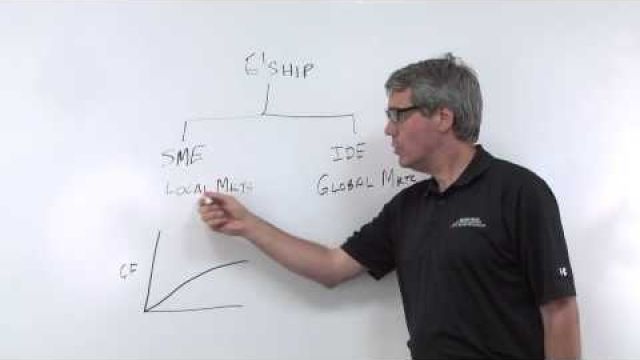

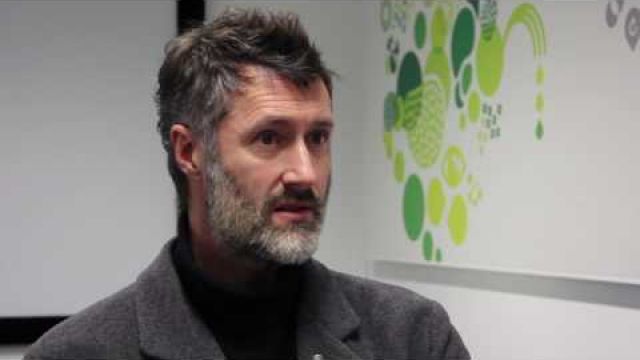
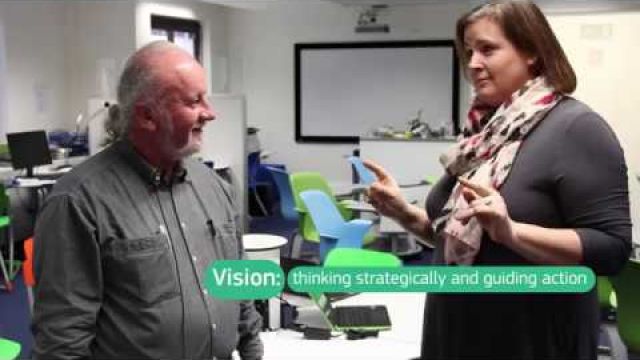
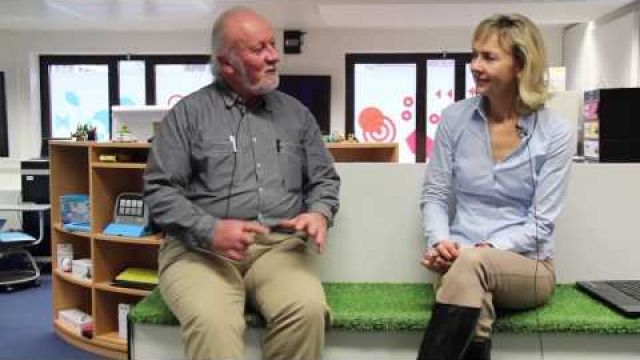
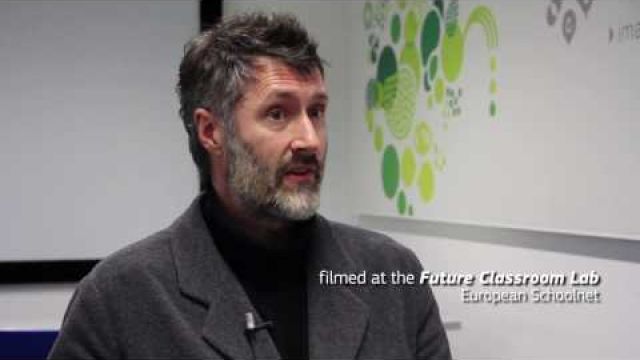
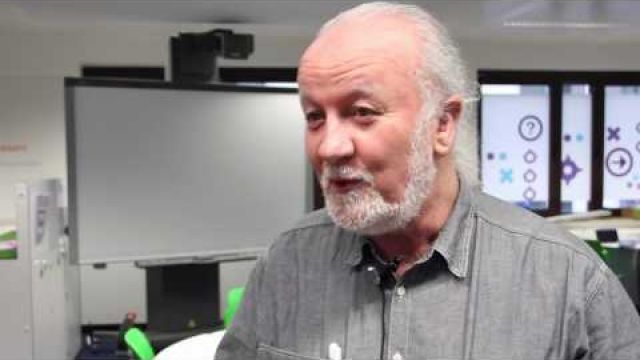
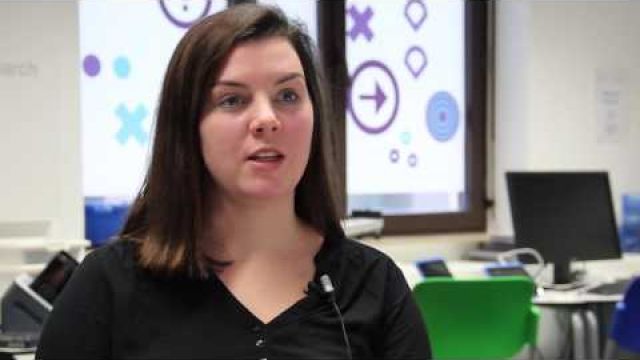
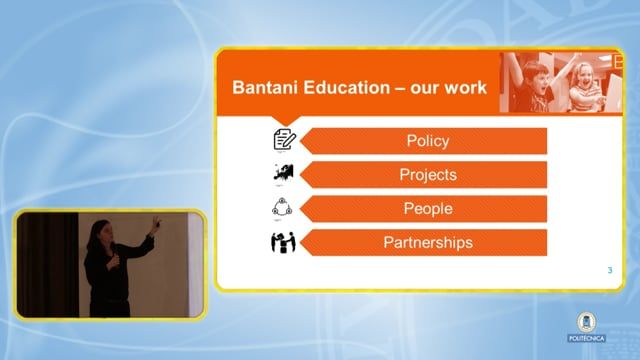





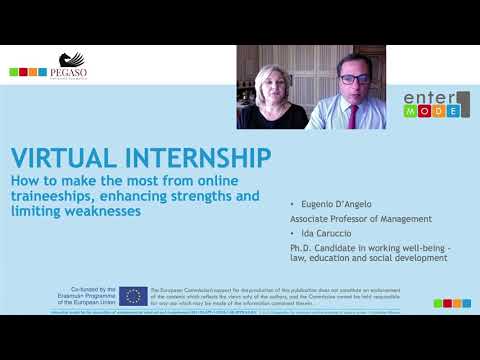
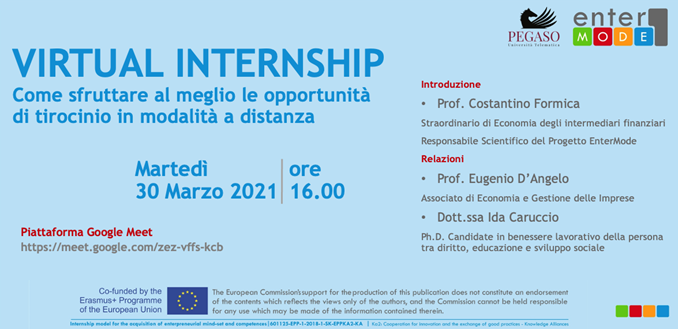
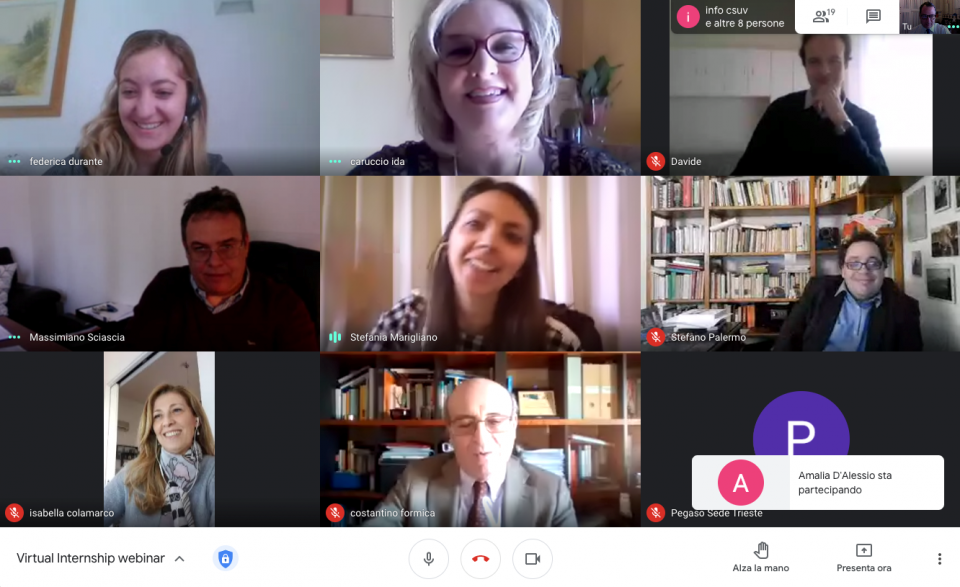
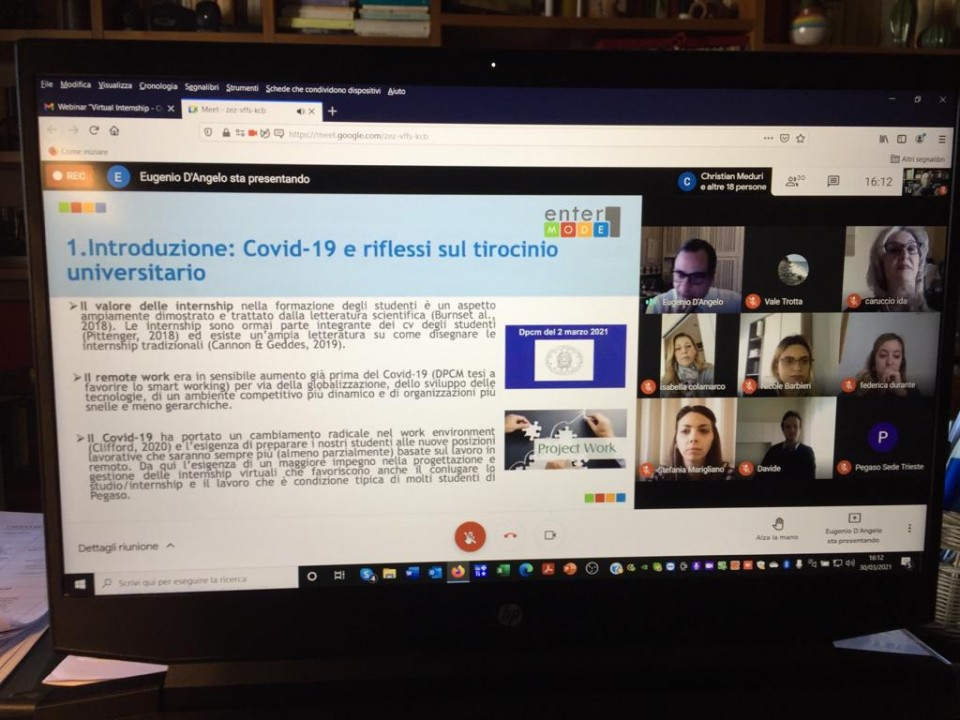









Promoting innovative approaches and developing entrepreneurial skills among university students by creating favourable conditions for graduate employability in Central Asia
mardi 4 mai 2021 13:21 par Natasa Urbancikova